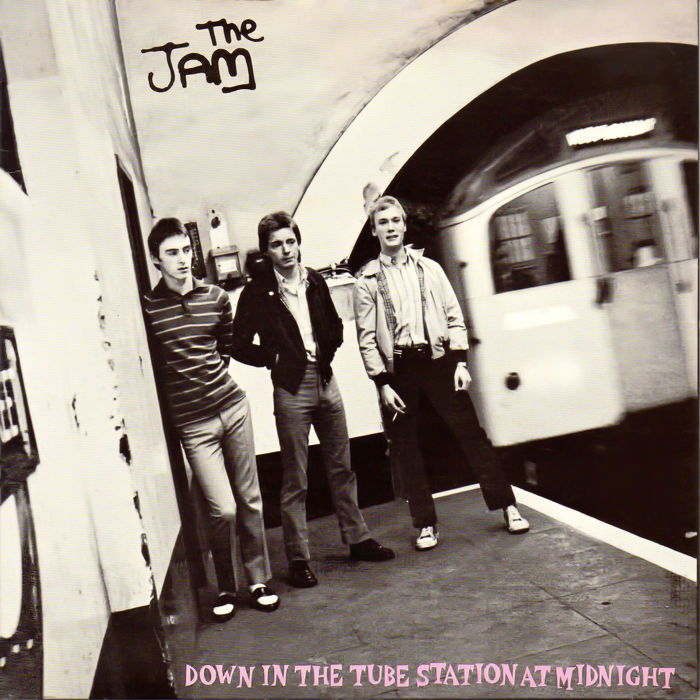Song Stories: The Jam: Down in the Tube Station at Midnight
The Jam were known for their social commentaries and for many their 1978 song "Down in the Tube Station at Midnight" is the bands most profound. Written by Paul Weller, the song captures a snapshot of late-1970s Britain, exploring themes of violence, social tension, and alienation, all set against the backdrop of a London tube station.
The song tackles themes of racism, crime, poverty, all of the things that seemed to be growing in late 1970s Britain.
It's a dark haunting song that tells the story of a man making his way home and preparing to catch a late night tube. Only to be brutally attacked by a gang of thugs. What begins as a seemingly mundane task of buying a train ticket quickly spirals into a violent and terrifying encounter. The lyrics create a vivid sense of place and unease, using stark imagery to paint a picture of the assault:
"I first felt a fist, and then a kick,
I could now smell their breath,
They smelt of pubs, and Wormwood Scrubs,
And too many right-wing meetings."
These lines are not only visceral but also laced with a subtle political undertone. "Wormwood Scrubs" refers to the infamous British prison, while "right-wing meetings" evokes a time when far-right political movements were on the rise in Britain.

The type of event Weller was writing about in this song was not uncommon in Britain. The country was going through a significant change, marked by economic decline, unemployment, and rising political extremism. The protagonist is a regular, working-class man, caught in the crosshairs of a society riddled with fear and hostility. As he's beaten and robbed, we sense a deeper commentary on the everyday struggles of ordinary people in a city where safety is no longer guaranteed, and individuals are left vulnerable to the darker forces of society.
The song is full of dark moments, with an ever changing narrative, first on the assault of the protagonist but then we find out the aftermath of what has happened. As he lies on the ground, beaten and broken, he recalls that he was on his way home to his wife, carrying a meal for two. The final verse hits hard, with a tragic realisation:
"They took the keys,
And she’ll think it’s me."
This line adds an emotional punch, turning a violent encounter into something far more tragic—now, not only is the protagonist a victim of physical violence, but his wife is left alone, waiting, unaware of the danger her husband has faced.
The song provides the listener with a snap shot of 1970s Britain, and reinforeced Paul Weller as one of Britains best ever song writers. A master class of story telling, that highlighted life in the city, the fear that many people had at that time and the sense of aggression that seemed to be felt across the UK at this time.
For many this the best song by The Jam and it's easy to see why.
Thank you for reading x
Jack